All faculty and staff are encouraged to watch this year’s virtual Honor Convocation, which will be viewed by all incoming students at 4:00 p.m., Friday, August 21 through Zoom: https://umw-sso.zoom.us/j/93389264525. UMW’s annual celebration of honor can also be viewed at any time by visiting: https://academics.umw.edu/academicintegrity/honor-convocation-2020/
Buster-Williams’ Research Project featured in Richmond Times-Dispatch
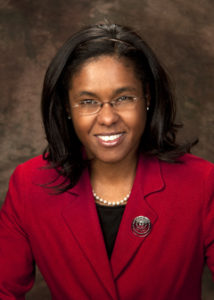
Vice President for Enrollment Management Kimberley Buster-Williams
Vice President for Enrollment Management Kimberley Buster-Williams was featured in an article in the Richmond Times-Dispatch on Sunday, July 26, 2020. The feature story discussed the discovery of her grandmother’s connection to a national social organization.
Kimberley Buster-Williams celebrated a joyous Christmas Day with her family in December, but it would be an unwrapped box she opened a day later that would turn out to be the most beloved of gifts.
Buster-Williams, of Fredericksburg, stumbled onto an unknown family legacy when she began looking through family pictures and documents last December that had belonged to her grandmother, Mary Hewlett Brown. The family matriarch and native Richmonder died in late January at age 98. Those who knew her called her Lollie.
Those she held closest in her heart called her “Mama Lollie.”
Buster-Williams intended to use the box of photos and documents to gather information for the obituary she would eventually write for Mama Lollie. That day after Christmas, however, as Buster-Williams began sifting through the contents of the box, she found a folder labeled “Epicureans,” an organization she’d only ever heard of in passing.
She was intrigued.
Earlier this year, with those same documents spread out on a table before her, Buster-Williams said she was curious back in December about what she found. There was a 1944 photo of 11 young, well-dressed Black women surrounding a table with what appeared to be cut-out letters that spelled “EPICUREANS.” Her grandmother was there, in the midst of the group. Read more.
McMillan Publishes Book Chapter
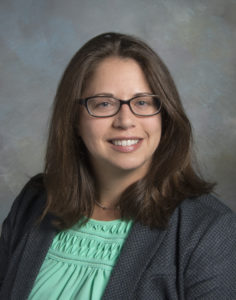
Assistant Professor of Historic Preservation Lauren McMillan
Lauren McMillan, assistant professor in the Department of Historic Preservation, published a book chapter entitled “Diamonds and Triangles: Two Locally-Made Pipes from the 17th-century Chesapeake” in the book Artifacts that Enlighten: The Ordinary and the Unexpected. The chapter examines the multi-racial and ethnic influences of clay tobacco pipe making in colonial Virginia.
Farnsworth Lectures on Presidential Communication
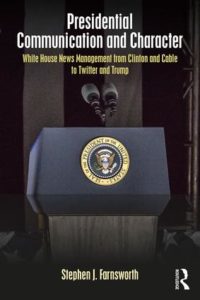 Stephen Farnsworth, professor of political science and director of the University’s Center for Leadership and Media Studies, recently delivered an online lecture, “Presidential Communication and Character,” for the Character Assassination and Reputation Politics Research Lab at George Mason University. The talk focused on Professor Farnsworth’s recent book, “Presidential Communication and Character: White House News Management from Clinton and Cable to Twitter and Trump.”
Stephen Farnsworth, professor of political science and director of the University’s Center for Leadership and Media Studies, recently delivered an online lecture, “Presidential Communication and Character,” for the Character Assassination and Reputation Politics Research Lab at George Mason University. The talk focused on Professor Farnsworth’s recent book, “Presidential Communication and Character: White House News Management from Clinton and Cable to Twitter and Trump.”
Information on the book is available here: https://www.amazon.com/Presidential-Communication-Character-Stephen-Farnsworth/dp/1138212237
Farnsworth has also commented on several regional and national news stories:
Trump’s COVID-19 Response (CTV News Channel)
U.S. Civil Rights Icon John Lewis Dies (CTV News Channel)
100 Days Until U.S. Presidential Election (CTV News Channel)
Pandemic and Polling (cp24.com)
Tell-All Book by Trump’s Niece (CTV News Channel)
U.S. election swing states: Virginia is for… Democrats? (New Statesman)
Cooperman Publishes Article on Republican Women

Associate Professor of Political Science Rosalyn Cooperman
Associate Professor of Political Science Rosalyn Cooperman contributed an article to the Center for American Women and Politics (CAWP) Election Watch Project, entitled, “Is 2020 the Year of the Republican Woman? Women’s PAC support for Republican Women Candidates Suggests Otherwise.”
Women’s gains to Congress in the 2018 midterm elections were party specific. That year nearly three dozen new Democratic women, and just one Republican woman, were elected to the U.S. House. As Republican women’s membership in the House shrunk to 13, Representative Elise Stefanik (NY-21) promised to “play in primaries” to increase the number of Republican women running for Congress in 2020. Since then, much has been written about whether 2020 would be the year of the Republican woman as it had been for Democratic women in 2018. To be sure, the increased number of Republican women House candidates on the ballot this cycle bodes well for those within and outside of the party working to recruit and elect more Republican women. After all, women can’t win if they don’t run. Many of these candidates also hold credentials including distinguished military service, community activism, and previous officeholding that enhance their standing. A closer examination of the most competitive House elections along with existing campaign finance networks available to these women, however, reveals a more nuanced evaluation of Republican women running for Congress in 2020. While more Republican women are running for the House this year than in previous cycles, they are hampered by their status as challengers – further complicated for some by a late primary schedule – and the patchy campaign finance network available specifically to them to aid their fundraising efforts. Together, these challenges present significant roadblocks for Republican women candidates and the efforts to grow their ranks. Read more.
Rettinger Comments on Cheating in Online Courses

Professor of Psychological Science David Rettinger
Professor of Psychological Science David Rettinger, who is also Director of Academic Integrity Programs at UMW, commented in an Inside Higher Ed article entitled, “Best Way to Stop Cheating in Online Courses? ‘Teach Better’.”
“Ever since the first monks were saying, ‘Oh, those new styluses are allowing them to illuminate those manuscripts much more easily, that’s clearly dishonest,’ there’s been somebody who thought the new technology makes [cheating] so much easier,” David Rettinger, a professor of psychological science and director of academic programs at the University of Mary Washington, said during the Wiley webcast. “The reality is that there has always been people using technology for good and for ill. I don’t think the internet is an epochal technological change — it’s just another in a series of the wheel turning.” Read more.
Stommel Comments on Hybrid Instruction

Jesse Stommel, Senior Lecturer of Digital Learning
Jesse Stommel, senior lecturer of Digital Studies, was interviewed by Education Dive on how colleges that are offering hybrid instruction this fall can support their students.
Several issues may arise with hybrid classrooms, especially when in-person and remote students are tuning into the same lecture. This structure has the potential to make a virtual student feel like a “fly on the wall,” said Jesse Stommel, a digital learning fellow and senior lecturer at the University of Mary Washington, a public institution in Virginia.
Although instructors can use technology to boost remote students’ participation, that group’s needs may be different from those of in-person students. Online learners, for example, could be more likely to have a chronic illness or be taking care of someone who is sick, Stommel said.
“The best thing that institutions can do is make sure that they are creating asynchronous opportunities for learning for those students,” he said.
Some institutions that only recently announced their fall plans have given instructors little time to prepare for hybrid courses. And others walked back their plans for an in-person fall as the coronavirus is surging throughout many parts of the country.
“Institutions should have made strong, assertive decisions about what the fall was going to look like so that students and faculty could start planning,” Stommel said. “Most institutions have instead waited until the very last minute to decide what the fall was going to look like.” Read more.
Distribution of Faculty, Staff, and Contractor 2020–2021 Decals
The following message is from UMW Parking Management.
To all UMW faculty and staff:
Current faculty, staff, and contractor parking decals were set to expire July 1, 2020. However, Parking Management has extended the decal period through August 31, 2020. Faculty, staff and contractor vehicles with decals that expire on July 1 may be parked on campus until September 1, 2020 without receipt of a citation for an expired decal.
New decals will be available for order beginning July 6, 2020. To order new decals, please follow the steps below before August 1, 2020 in order to receive your new decal(s) prior to the September 1 expiration date.
Please note that there is no charge for the 2020-2021 decals.
The new decals were ordered with a one-year expiration, taking into consideration UMW’s branding initiative, and will expire August 1, 2021.
To order parking decals:
Log in to Banner SSB, select personal information, then log into the Parking Management System (NuPark) using your UMW credentials.
- Under “Registered Vehicles”, select “Buy Permit” and complete required information.
To update vehicle information within NuPark:
If you have purchased a new vehicle or need to remove an existing vehicle, please log in to NuPark following the instructions above. Then:
- Select “Edit,” “Remove,” or “Add New Vehicle” and complete required information.
New decals ordered by August 1, 2020 will be delivered through campus mail.
Please direct questions and concerns to Parking Management by email at: parking@umw.edu or jelliot3@umw.edu;or by phone at 540-654-1129.
Richardson Column in The Free Lance-Star
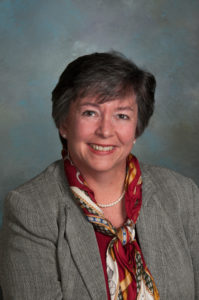
UMW College of Business Dean Lynne Richardson
College of Business Dean Lynne Richardson’s weekly column in The Free Lance-Star discusses being bold about your organization’s plans for after the pandemic. Read IMAGINING THE FUTURE.
THE PANDEMIC has totally disrupted so many parts of our lives, not the least of which is the workplace. So I’ve been wondering how our organizations will look in a few years.
In conversations with people who work in a variety of industries, a common theme is astonishment that work requiring an office setting a year ago can effectively be done from home today. One person said to me, “If I hadn’t seen it, I wouldn’t have believed it.” We can relate.
While what we do may be similar, how and where we work is different. So where do we go from here?
Grothe Pens FLS Letter to the Editor
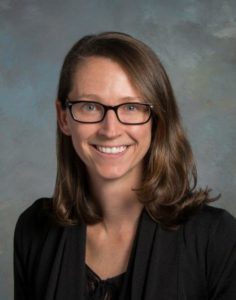
Assistant Professor of Earth and Environmental Sciences Pamela Grothe
Assistant Professor of Earth and Environmental Science Pamela Grothe recently penned a letter to The Free Lance-Star entitled, “Smarter choices will lead to net-zero emissions.”
As a professor for UMW’s COVID-19 in Context course, I spoke to students and community members on how the worldwide shutdown of economies has affected climate change.
The students asked an astute question: Will reduced emissions during the pandemic help climate change?
Scientists estimated that global emissions during the peak confinement period in early April dropped to 2006 levels. On average, countries with large economies reduced their emissions by 25 pecent at the peak of their confinement periods. Estimates for 2020 annual emission reductions range from 4-to-8 percent, the largest drop ever to be recorded. Read more.